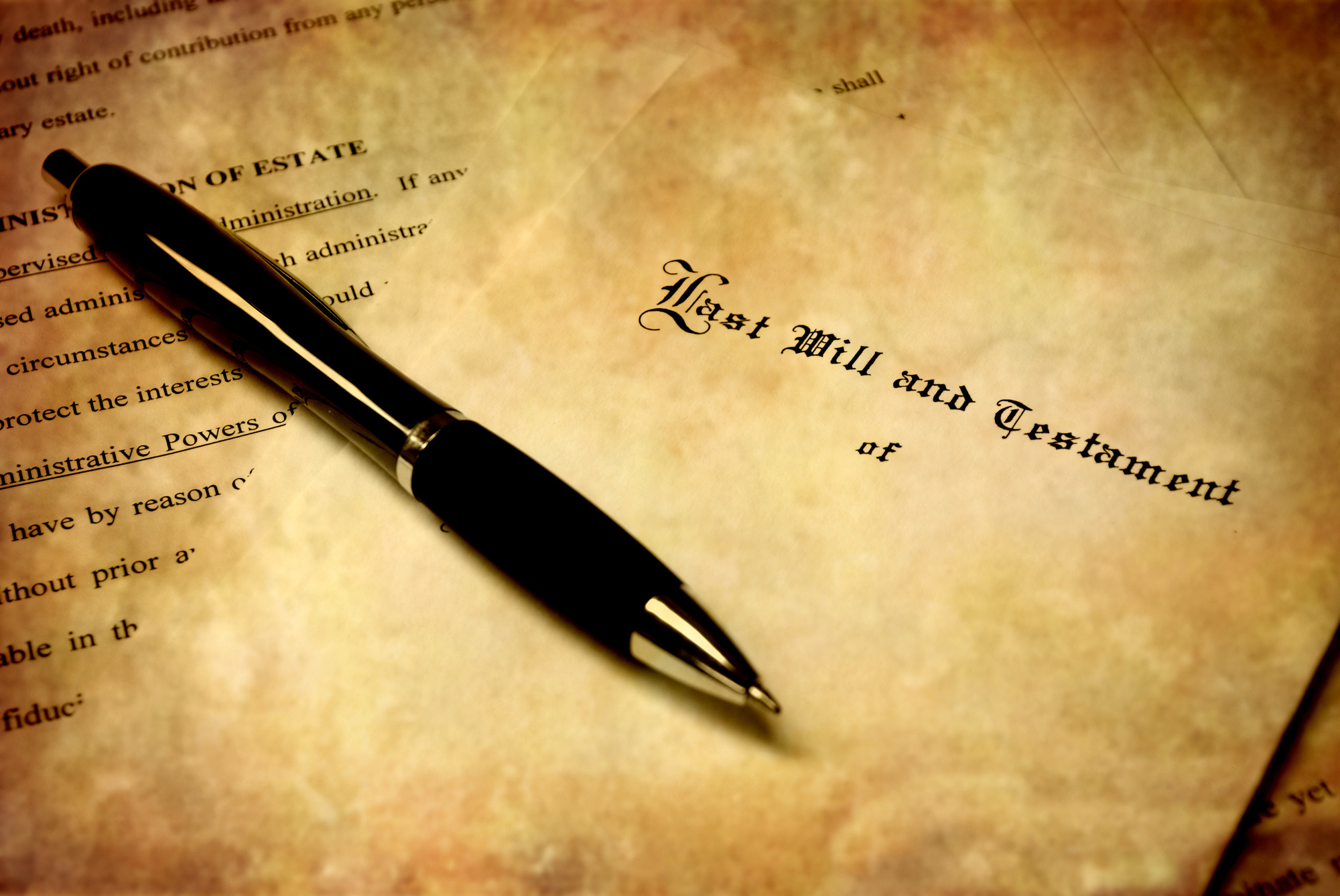Tag: Parent Dies and You Are the Executor

Surviving Loss: What to Do With an Estate After You Lose a Loved One
2.4 million funerals take place in the U.S. every year. If you're not in the funeral business, this is a sobering thought. When a parent dies, the grief and pain you are dealing with can often be compounded by financial pressures if you are named as their executor. In a way, it is flattering to be named a parent's executor. It means they trusted your intelligence, patience, and fairness enough to appoint you the overseer of their property after they are gone. In other ways, it is overwhelming to consider the number of debts, unknown assets, and contentious relatives you will need to keep a record of. If you are unsure what to do when a parent dies and you are the executor, take a deep breath, pick up a pen, and begin to approach your responsibilities in an organized, measured way. What to Do When A Parent Dies and You Are the Executor: Right after someone dies, there is usually a period of chaos. During this time, the estate needs to be opened, and the executor is appointed to avoid surprises by debt collectors or the IRS. You may have already been appointed the executor in a will. No one should begin to take or distribute assets yet. As the executor, it is your job to decide whether or not the will should go into probate, which is the official "proving" of the will in court. If the estate is larger, or if there is some disagreement about the will, probate may be necessary before you can begin carrying out your duties as the executor. When you go through probate, you will have to file papers with the local probate court, prove that the will is valid, and present the court with a list of debts and assets. You should also explain how they should be distributed. The probate process could take anywhere from a few months to a year. If your parent set up a living trust, you won't have to go through probate. The person named as the trust's successor will be able to distribute assets according to the will without having to go through the courts. Your overall responsibility as the executor is to make sure that all debts and creditors of the deceased are paid off. Then the rest of their assets can be distributed according to their expressed wishes. An executor is different from a power of attorney, who makes decisions about life-sustaining medical treatments while a loved one is still alive. Once they have passed, the power of attorney is no longer valid. If there are any dependent children or pets, you will need to be certain that guardians are appointed in accordance with the decedent's wishes. These are often complicated things to handle, you might want to enlist the services if an expert right away. Thomas Church, Florida Will Contest Attorney is one of the best Estate Litigation experts in USA. Get the Right Paperwork: Your first duty as the executor is to find your parent's will. It could be filed away with important paperwork or in the hands of their attorney. It is usually necessary to file with a probate court, even if it is determined that probate is not necessary. If there is a will in place, you will receive letters testamentary, which is a legal document authorizing you as the executor to take control over the decedent's estate. If there is no will, you will receive letters of administration. You can then begin your work as an executor. You should also be certain that a pronouncement of death has been filed. This is a letter filled out by a medical professional stating where and when the decedent died. A death certificate should become available after the funeral. You can obtain it from your funeral home, county registrar, or health department. About 10-15 copies should be sufficient to cover your administration needs. You will need the certificate to prove the situation to insurance, credit card, and mortgage companies. If you find you need more copies, they can be obtained from the Department of Vital Records. It is important to begin keeping a list of assets and liabilities before liquidating assets, paying off debts, and distributing funds among beneficiaries. Acquiring credit card statements, mortgage statements, vehicle registrations, a social security card, and copies of insurance policies will also make the process smoother. You should be sure to punch a hole in the decedent's driver's license and passport to help prevent fraud. Giles & Robinson, P.A. explains that an ancillary administration can take six to nine months to finalize. Hire Some Help: An estate attorney, like Verhaeghe Law, can help you avoid mistakes that could cost you money in the long run. A financial consultant can help with asset transfers. An insurance agent can assist with claims forms to help make sure beneficiaries are paid. The costs of the funeral, as well as getting the decedent's affairs in order, are taken from the estate. Don't be afraid to ask for help to make sure the process goes smoothly and does not end up making you liable for problems that may arise. Stop Payments: The decedent's estate is responsible for any debts that arise after death. Heirs and beneficiaries are not responsible, although some feel a sense of moral responsibility to pay them off. You should notify all credit card companies, government agencies, utility companies, and mortgage banks of the death. This will help you to avoid late charges, and accounts will be transferred to decedent status. Doctors and other health professionals who may be owed fees should also be notified. Check the decedent's credit card statements and be certain to cancel any payments with "auto-renewal," such as those for magazine subscriptions, AARP, AAA, and clubs. You may want to wait a month or two before closing the decedent's primary credit card so that you can view the companies that need to be notified. Be certain to contact the three main credit reporting agencies: Equifax, Experian, and Transunion, immediately. They can flag the decedent's account so no one will try to steal their identity. It is also a good idea to check back two months later to be certain no fraud has occurred. You should be sure to notify Social Security so they will stop payments and you will not be responsible to pay back posthumous checks. If your parent was employed at the time of their death, you will need to call their employer. You can find out about any payments due to them, death benefits, life insurance policies, and beneficiary benefits. Pay Off Debts: Keep a list of how much your parent owed to mortgage companies, credit card companies, car payments, etc. You may need to liquidate assets, such as selling houses or cars, to pay off these debts. Check with a CPA to see if your decedent's taxes have been paid. Money from the estate can be used to pay any money owed to the IRS. You will also need to file taxes for your parent from the day of the year they passed until the date of death. If the estate is large, there may also be state or federal estate taxes to pay. Consolidate Assets: The executor should open a separate bank account for ongoing bills, as well as incoming checks. Keep valuables safe in a safety deposit box. You should hire an assessor to see how much their property is worth. It is your duty as the executor to maintain the decedent's property until it is sold or bequeathed to the proper beneficiary. Distribute Assets and Maintain Healthy Communication: After all known debts are paid, you can begin distributing remaining funds to the family as specified in the will. It is important to get and keep a signed receipt from each beneficiary after they are paid. Many arguments and breakdowns during the asset distribution process happen because folks feel that they are being overlooked or marginalized. It is important to let them know what the timeline is so that they will know exactly what is being done with the funds and when they can expect to receive funds that are due them. It is a good idea to take some time before making investments with estate funds, as grieving can be an emotionally overwhelming time for most. Close the Estate: You may be required to file a petition in court before distributing assets and closing the estate. As the executor, your duty is complete. Take Care of Yourself: Losing a parent can be one of the most confusing, disheartening times in an individual's life. If you are overwhelmed by the complications of what to do when a parent dies and you are the executor, be sure to enlist the help of qualified professionals. By keeping detailed records, liquidating assets, paying off debts, and distributing assets, you can be assured that your parent's affairs have been handled properly and you can begin taking steps toward the next chapter in your life. For more lifestyle advice, read our blog today. Read Also: Eight Essential Tips For Getting Out Of Debt 9 Vital Options For When You’re Desperate For Money
READ MOREDetails















